Haiti: The nation of tyrants, voodoo, natural disasters and nefarious international allies
The story of how this small Caribbean nation fell into misery is extensive and goes beyond the terrible earthquake in 2010 or the prime minister's assassination in 2021.
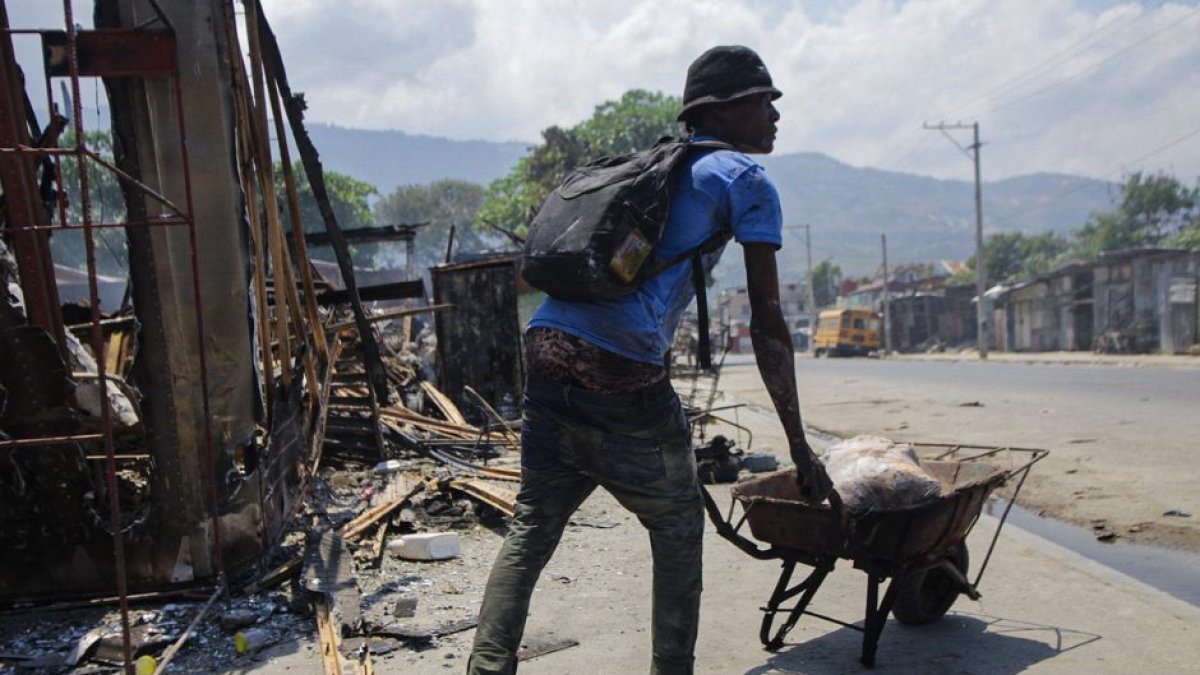
Imágenes de la crisis de violencia en Haití, a principios de mes. (Cordon Press)
In recent weeks, Haiti has been in the global news. It made headlines in 2021 when the nation was shaken by the assassination of former president Jovenel Moïse. It was also in the international spotlight in 2010, when a terrible 7.0 magnitude earthquake destroyed practically every major city on the island, especially impacting the capital Port-au-Prince.
That tragedy was one of the worst of humanity. Nearly 200,000 were killed, 350,000 were injured and more than 1.5 million were displaced and homeless.
This time, however, Haiti made headlines around the world not because of a historic natural disaster or an assassinated president but because of an armed rebellion led by the bloodthirsty local gangs that control 80 to 90 percent of Port-au-Prince. This new crisis of violence led Prime Minister Ariel Henry to resign from office. He is now in exile.
The leader of this criminal revolution is none other than Jimmy Cherizier, known as "Barbecue." The former police officer turned gang leader has been accused by the United Nations and the United States of orchestrating deadly attacks against civilians. Now “Barbecue,” who heads the armed group “G9 Family,” has made himself out to be the liberator of Haitians. He even managed to overthrow Henry after Moïse was killed in 2021.
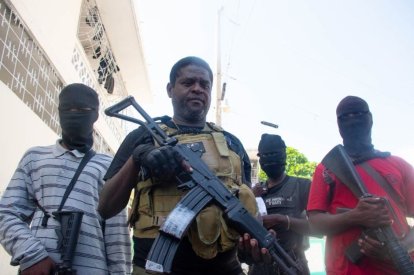
Armed gang leader Jimmy
At that time, the gang leader, who was very close to Moïse, stated: “We have chosen to take our destiny into our own hands. The battle we are fighting will not only overthrow Ariel's government. It is a battle that will change the entire system.”
But how did Haiti become a leaderless failed state dominated by gangs?
There was a long road to get to this point.
An independence weighed down by harmful foreign factors
The Clinton family and international NGOs were not the only “allies” that weighed down Haiti from 2010 onwards through multimillion-dollar failed international aid that did not help the country rebuild after the earthquake.
The history of this Caribbean nation, discovered by Christopher Columbus, has proven that Haiti's "friends" were detrimental to the development of this small country, which was not always in bad shape.
The Spanish described Haiti as a paradise for its pleasant climate, its agricultural wealth, its extensive forests and its productivity. However, Europeans brought diseases with them with they came over which would end up killing the native people over time. They were replaced with slave labor brought from Africa. In those years, Haiti, the jewel of the Caribbean, was recognized for its vast resources, although they were exploited by foreign powers.
In 1804, after decades of colonization, Haiti became independent and was founded as the first black republic in the world. A brutal process of warlike independence was successfully carried out at the same time as the French Revolution.
The Haitian revolution, which began in 1791, preceded the rest of the wars for independence in Latin America. The intense hatred that Black slaves had toward their white masters manifested after decades of oppression. The war, which lasted 13 years and had many complex phases involving different powers and social classes of the time, culminated with the triumph of revolutionary leader Jean-Jacques Dessalines, who proclaimed Haiti's independence on January 1, 1804, becoming its first ruler.
Dessalines, who rose to the rank of general in the service of Governor General Toussaint Louverture, the most important political and military leader of the Haitian revolution, ordered the ethnic cleansing of white Creoles in Haiti. It was one of his first measures and it is estimated that between 3,000 and 5,000 people were killed, leaving the country practically without whites.
But in Port-au-Prince, it is often said that this great independence victory for Haiti was, in reality, the beginning of centuries of debt, underdevelopment and ultimately, misery.
France, taking advantage of the fact that the world order feared that Haiti's independence process could become an anti-slavery beacon for the colonies of other powers, orchestrated a geopolitical movement that would condemn Haiti to underdevelopment.
According to a BBC report, to achieve some recognition in the international community, the then Haitian president Jean-Pierre Boyer signed an agreement with the French country in 1825 that would burden his nation for more than a century: The Royal Ordinance of Charles X.
The pact, promoted by the French empire that was still threatening to recover its former colony, promised Haiti diplomatic recognition at a very high price. The country committed to a 50% tariff reduction on French imports and agreed to pay 150,000,000 francs to compensate the former colonists for the properties they had lost.
According to an article in The Times, the first installment of this compensation was six times the country's total GDP, so Haiti had to ask for loans from French banks to pay the debt. This situation plunged the country into endless debt, which was prolonged with loans to German and American financial entities.
“The country was saddled with the enormous debt burden until 1947. Last year an investigation by The New York Times calculated that the true cost of the reparations paid was $21 billion, more than the nation’s 2023 economy. Research by the University of North Carolina School of Law has estimated that without the debt Haiti’s economy could now be reasonably expected to be six times bigger, placing it on a par with its far more successful neighbor, the Dominican Republic," reads The Times.
The consequences of this debt were profound. Carolyn Fick, an expert on Haiti at Concordia University in Canada, told the BBC that the compensation payments “literally paralyzed the ability of Haitians to invest in infrastructure, public education and the general functioning of government services.”
That is to say, independence was extremely expensive for Haiti. Throughout the 19th century, the country's political and social unrest never allowed it to generate stability. More than 20 dictators came and went from power without achieving an established order for future generations.
In fact, Haiti earned the reputation of being a tremendously uncivilized nation, where cannibalism, human sacrifices and dangerous mystical rites were, according to reports, daily occurrences.
Going into the 20th century, France was no longer Haiti's main “ally." The United States stepped in to safeguard the interests of American corporations that had assets in the country, which Democratic President Woodrow Wilson argued was necessary at the time.
Seeing that Haiti struggled to pay back its debts to American financial entities, the United States occupied the Caribbean nation from 1915 to 1934, in one of the longest military occupations in the country's history.
The invasion was sold by the State Department as a necessary step to “civilizing” the country. It was also a way to avoid a potential German invasion. The truth is it occurred under strong pressure from Wall Street in general and National City Bank in particular, the entity that later became Citigroup.
“Under heavy pressure from National City Bank, Citigroup's predecessor, the American elbowed French aside and became the dominant power in Haiti for decades to come,” reads the pages of The New York Times. which cited reports from U.S. officials. “The United States dissolved Haiti's parliament at gunpoint, killed thousands of people, controlled its finances for more than 30 years, shipped a big portion of it to bankers in New York and left behind a country so poor that the farmers who helped generate the profits often lived on a diet 'close to starvation level,' United Nations officials determined in 1949, soon after the Americans let go of the reins.”
Historians still debate the legacy of the American invasion and how it shaped Haiti's sociopolitical situation for decades to come. Despite the reported abuses, the occupation wasn't all bad. During this time, Haiti made some tangible infrastructure improvements. Hospitals were built, along with 800 miles of roads. The country's public administration also became more effective.
However, what good were these improvements in historical terms? The answer is clear: very little.
The rise of 'Papa Doc,' Haiti's most brutal tyrant
Since colonial times, Haiti has been closely culturally linked to voodoo. But it was not until the second half of the 20th century, under the regime of François Duvalier, that voodoo became an effective method to implement social terror from the government.
Duvalier, also known as Papa Doc, stands out as the figure who wielded the greatest influence over the decades of misery that have plagued Haiti until the present day.
Duvalier was a fascist tyrant, in every sense of the word. He repressed those who opposed him. He employed fearsome torture methods and public executions against conspirators. The first execution took place 66 years ago, on July 28, 1958, when five American mercenaries supported by Haitian Army officers tried to overthrow the then-elected president who had only been in power for about 12 months.
The coup d'état failed, and thereafter, Duvalier tightened his grip with an iron fist leveraging a mystical aura rooted in voodoo to instill fear and cultivate followers.
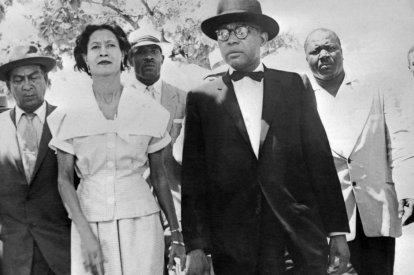
François Duvalier,
The story goes that Duvalier, who came from a family of farmers, was intelligent and gifted in manipulation skills. This was evident from a young age. He studied medicine at the University of Haiti. He worked to fight against typhus, malaria and other diseases. He became famous and earned the nickname Papa Doc.
His years as a doctor led him to serve as Director General of Health and in 1949 for the Ministry of Health and Labor. Finally, in 1957, amid much political upheaval, he became president in the only election that he would legitimately win. His campaign appealed to the rift between Afro-Haitians (lower social class) and mulattoes (the elite).
Although in his first months, he demonstrated serenity by sticking to his campaign promises to improve the quality of life of those who were less fortunate, the first attack against him marked the beginning of his political shift. Duvalier, who already had a reputation for using unconventional medical practices rooted in voodoo, began to generate a mystical personality cult.
He latched onto voodoo to generate more popularity among Afro-Haitians and went so far as to say that he was an 'oungan,' the equivalent of a voodoo priest. One image that is forever etched into the minds of Haitians was when he imitated the spirit of 'Baron Samedi' (deity of death and cemeteries in the voodoo pantheon). He wore sunglasses and imitated the spirit using a nasally voice.
Of course, Duvalier achieved his goal of making Haitians fear him.
His mystical delirium was so great that Papa Doc even took credit for the death of John F. Kennedy. He claimed he cast a voodoo spell after the Democratic leader decided during the Cold War not to support the dictator and finance the Haitian dissidence.
Voodoo was not his only method used to achieve social control. Duvalier was the target of several attacks and his children were the victims of attempted kidnappings. This led Duvalier to create a repressive force, an alternative to the Army and the police that was known as the “tontons macoutes.” The group was made up of ruthless, untrained criminals who tried to intimidate, persecute, torture and kill anyone who acted out against Duvalier.
An article in La Vanguardia states that “Imbued with voodoo beliefs, these militias acted convinced of their superior mission." Duvalier remained in power, establishing a kind of family monarchy.
Duvalier's battle with diabetes finally cost him his power in 1971.
His legacy was bloody. It is estimated that, under his regime, 30,000 people were murdered. Civilians, soldiers and political opponents died. No one was safe from Papa Doc. He designed the Haitian Constitution and declared that his son, Baby Doc, would succeed him in office. Baby Doc became president for life at the age of 19.
Duvalier's son, who was said to have been a poor student with little interest in politics, not only inherited the position left to him by his father but also his father's way of ruling. Haiti remained a tyranny for 15 more years until Baby Doc was overthrown by General Henri Namphy's military coup.
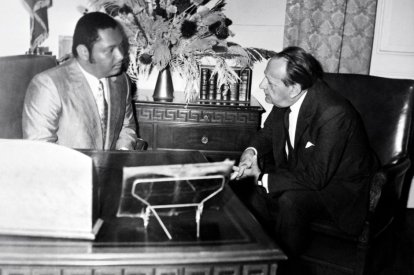
Jean-Claude Duvalier, dictator of Haiti for 15 years
Baby Doc was exiled to France. He took with him a fortune estimated at $1.2 billion, a figure that, at the time, exceeded Haiti's foreign debt.
That year, after his son was overthrown, François Duvalier's body was dug up by an angry crowd. The tyrant's crypt was destroyed and his remains were beaten in what appeared to be a voodoo ritual.
The Duvalier dictatorship was completely immoral. It will be remembered for being a regime of terror. It impoverished the country and was full of corruption. When Papa Doc died, Haiti was still the poorest country in the region, the lowest ranked in literacy rates, and had one of the worst health systems on the continent. All his promises were forgotten and his legacy meant decades of delay for a country that was already a century behind in paying its foreign debts.
A turbulent “democratic” era
With the Duvaliers out of office, many thought that, perhaps, it was time for Haiti to rise from its ashes. However, the democratic era after 1986 was far from working.
Although Haiti achieved political stability, the country was still plagued with economic failure, coups d'état, political repression and corruption. The country seemed to be condemned to eternal underdevelopment.
In these almost four decades, Haiti has fallen back on old vices of the past. Now, bloodthirsty gangs have taken over the country amid natural disasters, humanitarian crises and an absolutely devastated country that has no respect for life.
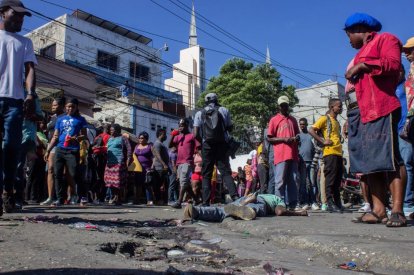
How Haiti fell into extreme poverty
According to the United Nations, in 2023 homicides increased by 119.4% compared to 2022. That year 4,789 people were killed, including 465 women, 93 boys and 48 girls. In 2023 alone, 8,081 people were victims of gang violence, according to UN data.
Perhaps Papa Doc, one of the men who contributed most to Haiti's misery, was right when he said, “Haitians are destined to suffer.”

























